How time flies! About 10 years ago today, I took the first step into a whole new world – the world of startups and entrepreneurship.
I still remember the day I started my first venture as a college student back in 2004. I didn’t know what entrepreneurship was about and what building a startup meant.
There was no elaborate business plan, lean canvas analysis, marketing blueprint or exit strategy. The thought of becoming the next Bill Gates or Mark Zuckerberg (Facebook was in its infancy years then) was also non-existent; I was just fueled with pure curiosity and passion to do what I started off with.
Today, startups and entrepreneurship seems to be the latest trend in town and perhaps, even a norm for some. Almost everyone, both young and old, are wanting to start something of their own for various reasons and that’s cool – but, what does it really mean to start something of your own?
It’s far beyond being your own boss, having flexible hours or even getting rich (ha!).
What is it then, really? Here are 11 things I’ve learnt (out of the many others) throughout the past decade that will help you at your crossroads, or if you are facing similar situations and lessons, or even if you are just curious and interested about start-ups and entrepreneurship.
#1: Overnight success does not happen to everyone
Running a startup is really unlike how the media tells it – huge overnight acquisitions, closing massive funding rounds and other seemingly quick successes. In fact, a majority of the startups do not experience such situations. Often times you may question your capabilities but don’t waste time salivating and thinking about their success. Be zealous over what you have and build your own success story!
#2: Get used to sacrificing yourself (quite literally)
Many tend to oversee the amount of sacrifice that’s needed for a startup. I’m talking about months and perhaps, even years without a “proper” income, having one too many sleepless nights thinking about how to make things work, taking the heat from your team and for your team, get pushed around by clients or investors, catching up with friends and sometimes, even family time. Honestly, it does not get easier and better over time. In fact, the sacrifice becomes greater and you’re forced to rethink your priorities.
#3: Others will look down on you
Unfortunately, throughout your journey you will meet people who would not believe in what you’re doing, treat you lesser than others, and of course, those who would only come to you when you have accomplished something. Truth is, people will always talk about you despite your successes and failures. Instead of mopping around, pick yourself up and learn how to deal with it. Easier said than done, but it can be pretty tough at times, especially when you’re facing a dry spell.
#4: You cannot do it alone
Your ideas are nothing if there is no team to share it with. I am blessed to have met some really awesome people in the past years. Sure, there were times when our ideas and ideals clashed, and times when the venture didn’t work out. But that does not change the fact that a strong team effort is needed. You would also need a personal support system of your own; be it your loved one, family, friends, or even a bunch of like-minded people. When you’re bursting with ideas or stuck in a rut, you’d want to share it with these people.
#5: It is not all fame and glory
Others tend to put entrepreneurs on a pedestal because of their courage to step out and do something on their own. But truth be told, it’s nowhere near that glamorous at all. You need to be prepared to get your hands dirty to work on every aspect of the business because no one else will. While my name card states that I’m the founder, I am actually the janitor, data entry personnel, human resource executive and basically, anything else that comes to mind. Of course, some of these roles will and can eventually be delegated in the future. But first, it starts with you.
#6: Learn to let go
It is always difficult to let go of something that you’ve invested a lot in. The past 10 years has taught me to identify signs or situations to let go of people and ventures. Personally, I have never liked letting go of things but I’ve learnt that letting go is a critical factor of growth. In fact, keeping things for its sentimental value will only pull you back.
#7: Multitasking is not for you
Startup founders are scatterbrained, but not in a bad way. Most founders I know are always overflowing with ideas; maybe you too! The challenge here is to focus on one idea at a time. Diving head first into multiple ideas will most likely do more harm than good, even when they all seem equally attractive and appealing. Doing multiple things at one time will jam you up. Prioritize, prioritize, prioritize!
#8: Don’t limit ideas and opportunities
This is a tough one to balance. On one hand, you should always be exploring new ideas and on the other, you need to focus on one thing at a time. The art of balancing here is to keep an open mind and never shut off ideas despite how silly they seem. You may not want to work on them now, but it may certainly become useful in the future. What really helps is having a notebook (digitally and physically) to jot these ideas when they come.
#9: Speed beats completeness
I started off thinking that it is better to launch a complete product even if it takes a longer time. I was wrong, simply because the product will never be complete. You’ll find yourself building and enhancing for the umpteenth time and you’ll never be satisfied because there’s just too many ideas to execute! Seeing how fast paced the industry and technology is, what you have in mind would have already been implemented by someone else. You need to be quick and agile to put it out there while it’s hot.
#10: Discipline is key
I’m always intrigued by the daily life of every entrepreneur. Everyone has a unique lifestyle that works for them. But if there’s one thing that’s similar, it has got to be the level of discipline – it ranges from their sleeping behavior, morning routines and right up to their task management; they keep it tight! And they leaving little or no room for procrastination and “doing nothing”.
#11: It’s a faith-building process
I wish I could say that I have perfected the formula to startups and entrepreneurship over the years but I’m nowhere near that. Every day, a new challenge comes and every decision made is a new and an untraveled path. It’s an on-going process that will never be perfected, which is why I rely on God to lead the way. He’s the one that has brought and sustained me thus far and the source of what I have and who I am today.
What is your biggest challenge in starting up or getting into entrepreneurship?
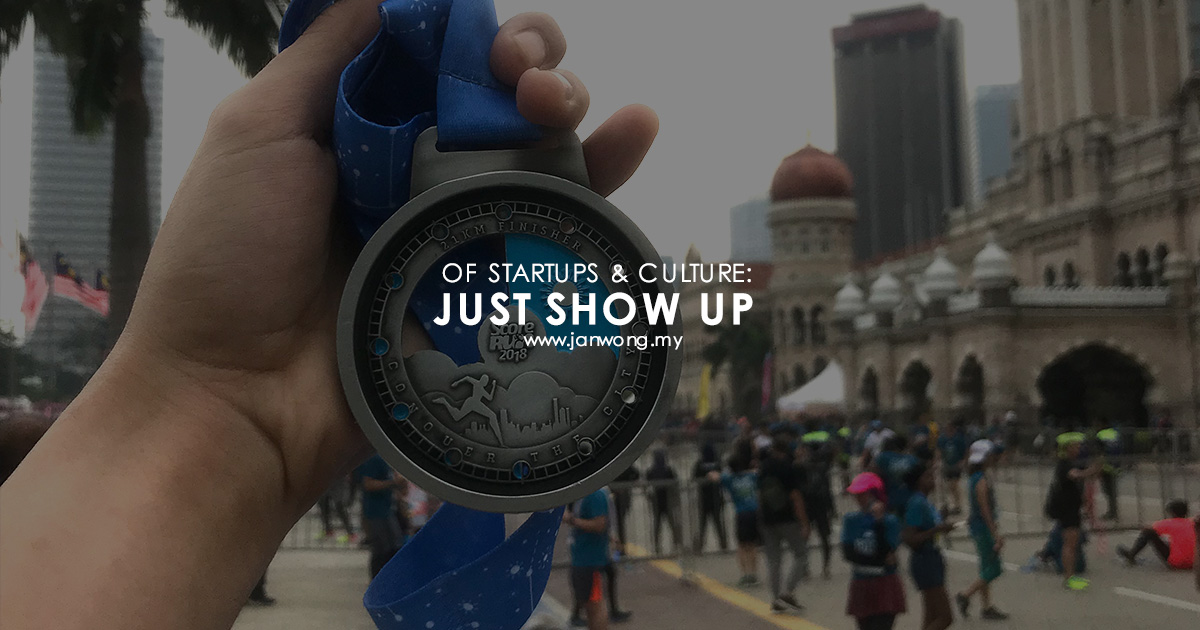


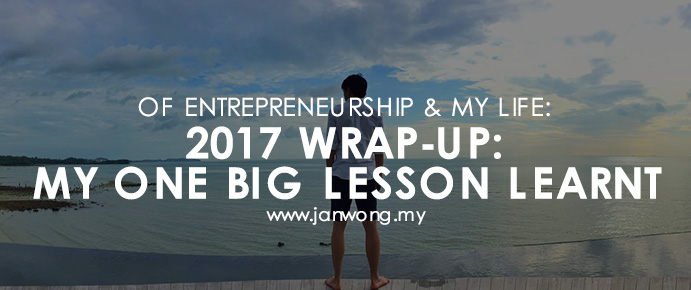
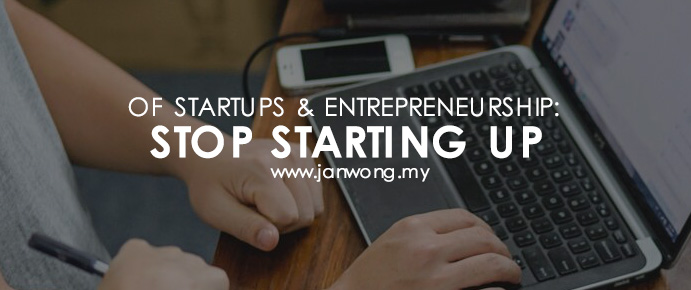
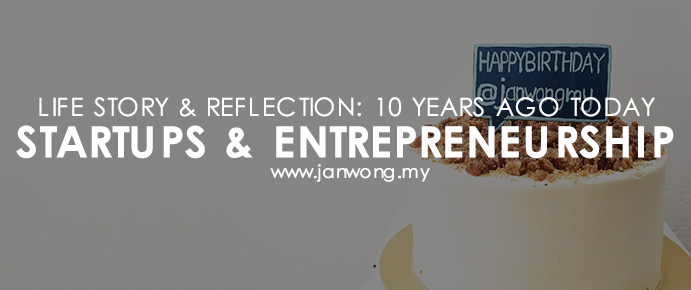

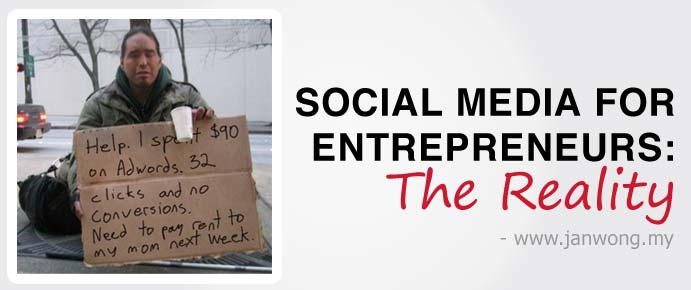
 + Keep your head in the game and focus on what’s most important for your business.
+ Keep your head in the game and focus on what’s most important for your business.



